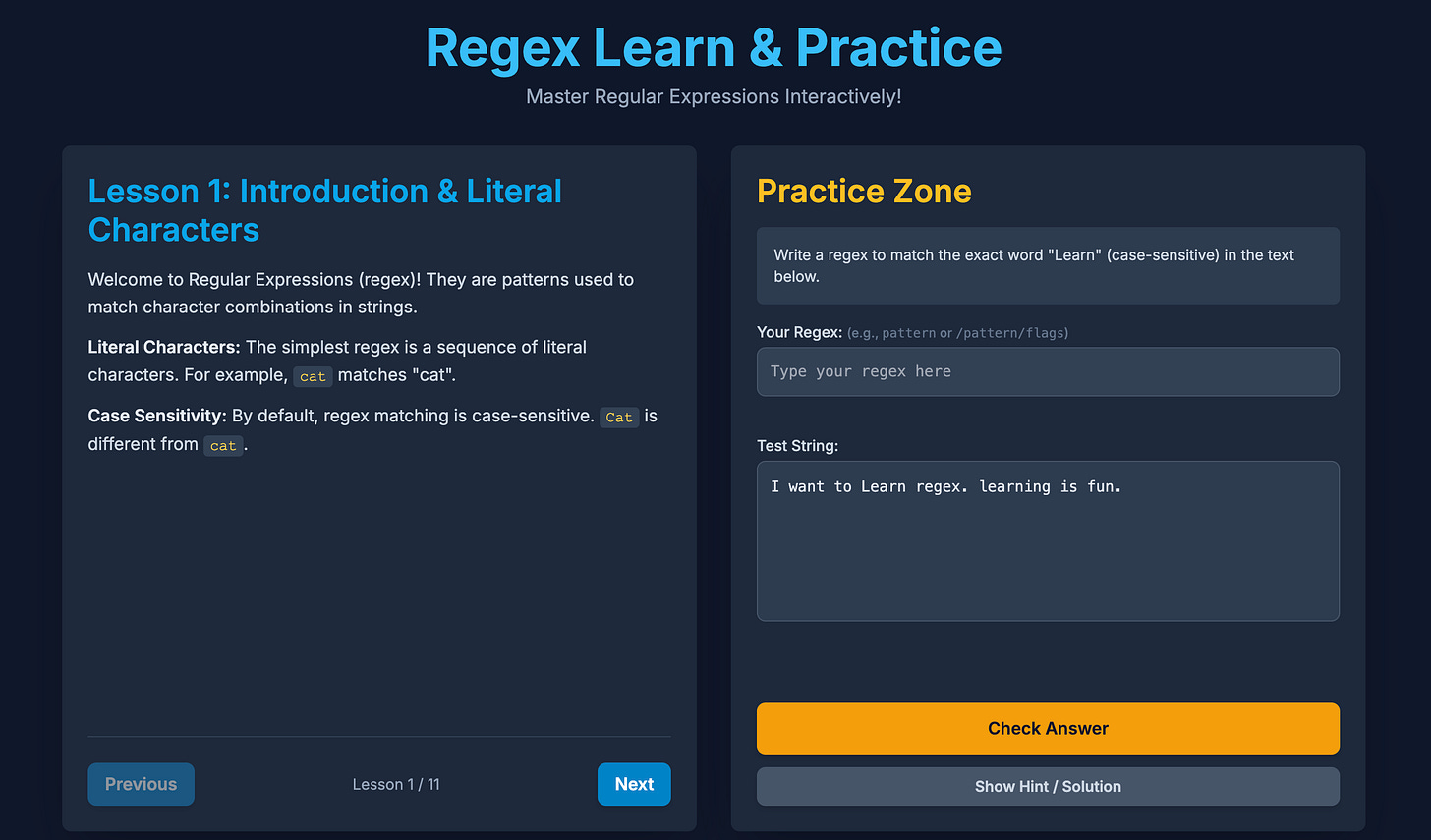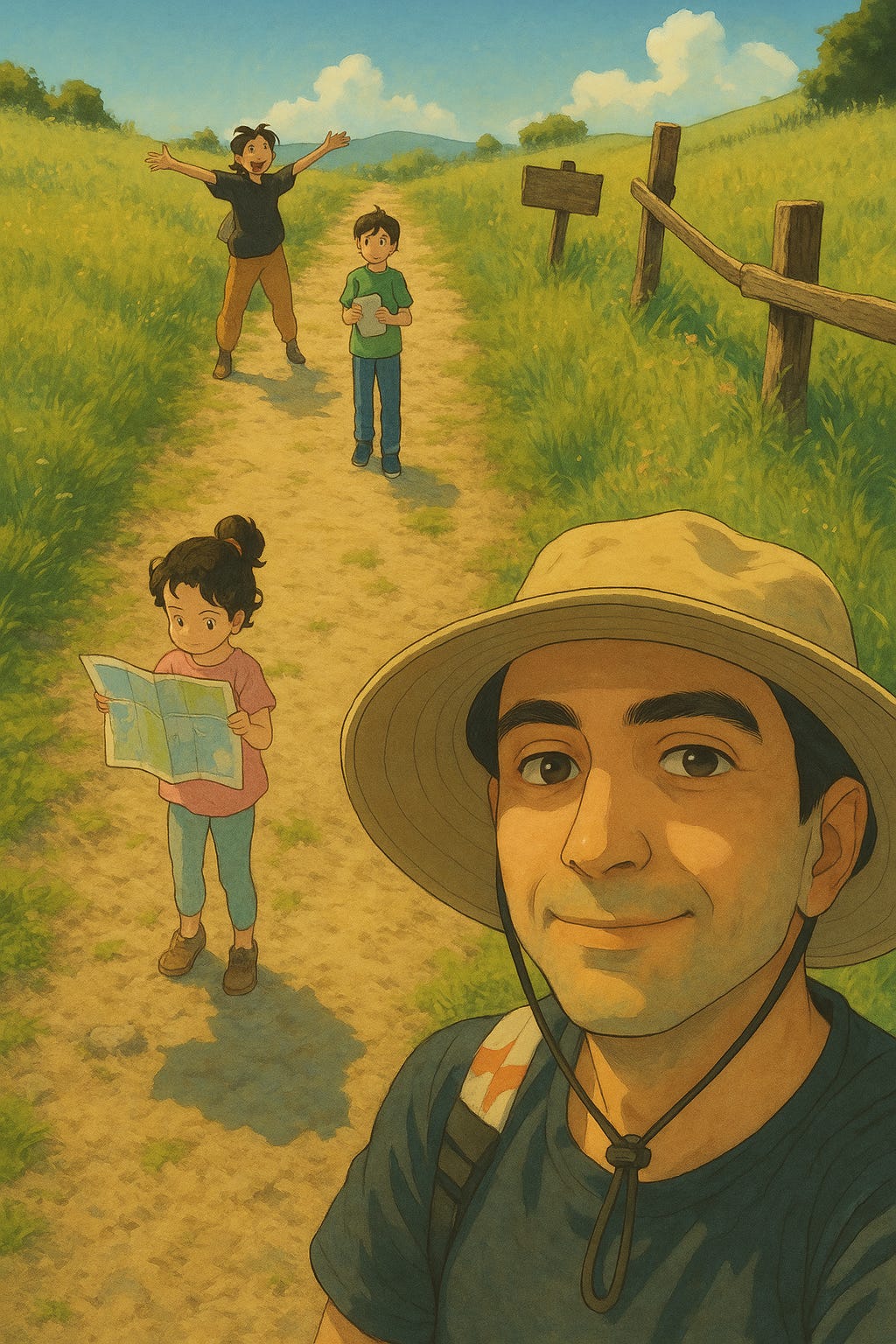The Future is Now: Little Ways AI is Remaking My World
I've been noticing AI pop up in my life in some pretty unexpected and useful ways. It's not about far-off future stuff; it's about how I'm already doing things differently – from tackling complex information and building my own simple software, to how I choose my books and share memories. It's quietly becoming a go-to tool.
Let me tell you about a few ways my habits have already started to shift.
Learning Things Way Faster
Remember trying to understand something really complicated and just feeling stuck? I used to spend ages trying to figure things out. Now, if I come across a dense research paper, I can ask an AI to break down the main ideas in simple terms. It’s like having a super-smart tutor on call.
And it’s not just for reading. If I’m struggling to really get a concept, I can ask AI to help me picture it, or even sketch out how a little interactive demo would work. For example, I wanted to understand regular expressions better. So, I had Gemini help me design a simple website where I could try out different patterns and see them work instantly. It’s much better than just reading about it; I can play around until it makes sense. This makes learning feel more like a hands-on exploration.
Building My Own Tools (It's Easier Than You Think!)
I used to always search for an app someone else had made whenever I had a specific need. But now, I’m finding I can often build my own little tools, especially with AI helping out with some of the coding.
For instance, I often need to share screenshots, but some information needs to be blurred out for privacy. Instead of fiddling with editing software every time, I built a simple Chrome extension that lets me quickly blur parts of my screen before I take the shot. It solved the problem of needing to quickly obscure sensitive details, and it really saves me time. Plus, since it’s my own extension, I know exactly what it does and don’t have to worry about the security or privacy risks that can come with installing third-party browser tools.
Another little app I made, which is also a Chrome extension, helps me bookmark webpages directly into a Google Sheet. This is perfect for organizing links I want to save because all the information is stored in my own spreadsheet. This means it’s private, and I can easily open it up anytime to find links I’ve previously saved. I’ve even put together small scripts, like one that emails me my upcoming calendar events each week, or a utility that copies code from a folder right to my clipboard so I can easily paste it into LLMs to enhance it.
It really feels like we're entering an age of "personal software." Instead of a one-size-fits-all solution, I can make something that fits my exact needs, and then change it as I go. It's pretty cool to have that kind of control.
Getting More from My Books
I’ve always loved books and have a big collection on my Kindle. But lately, I’ve found myself preferring to buy books as PDF files when I can, especially ones that aren't locked down by DRM. The main reason? I can load these PDFs into tools like Google's NotebookLM.
Imagine reading a book about Big Data and being able to chat with it. I can ask things like, "What are the key takeaways from chapter 3?" or "Can you explain the author's viewpoint on Collaborative Filtering in simpler terms?" It’s like having an intelligent conversation partner embedded in my reading material. This helps me engage with the content much more deeply and remember it better than just highlighting text. It makes my books feel much more dynamic.
Sharing Memories, Keeping Our Privacy
My wife and I tend to be private people, especially when it comes to posting pictures of our family and kids online. We want to share our joys, but we're also careful about privacy in the digital world.
AI image generation has offered a neat solution here. If we have a photo from a special family occasion, like the kids building a sandcastle on a beach, I can use AI to create an artistic interpretation of that moment. It could be in a storybook illustration style or look like a soft painting. The AI image captures the feeling and the essence of the memory – you can still tell it’s our family and what’s happening – but it’s not their exact photographic likenesses. This way, we can share the happiness with friends and family without compromising our kids' privacy. It’s a good balance for us.
The New Normal?
These are just some of the ways AI is starting to weave into my daily life. It’s less about AI taking over and more about it providing tools that allow me to do things in new, often better, ways – learning more effectively, creating personalized solutions, and sharing on my own terms.
I’m curious if you’re seeing similar changes. Are you using AI in ways that surprise you, or that have made your daily tasks a bit different? I’d love to hear your experiences in the comments below!


